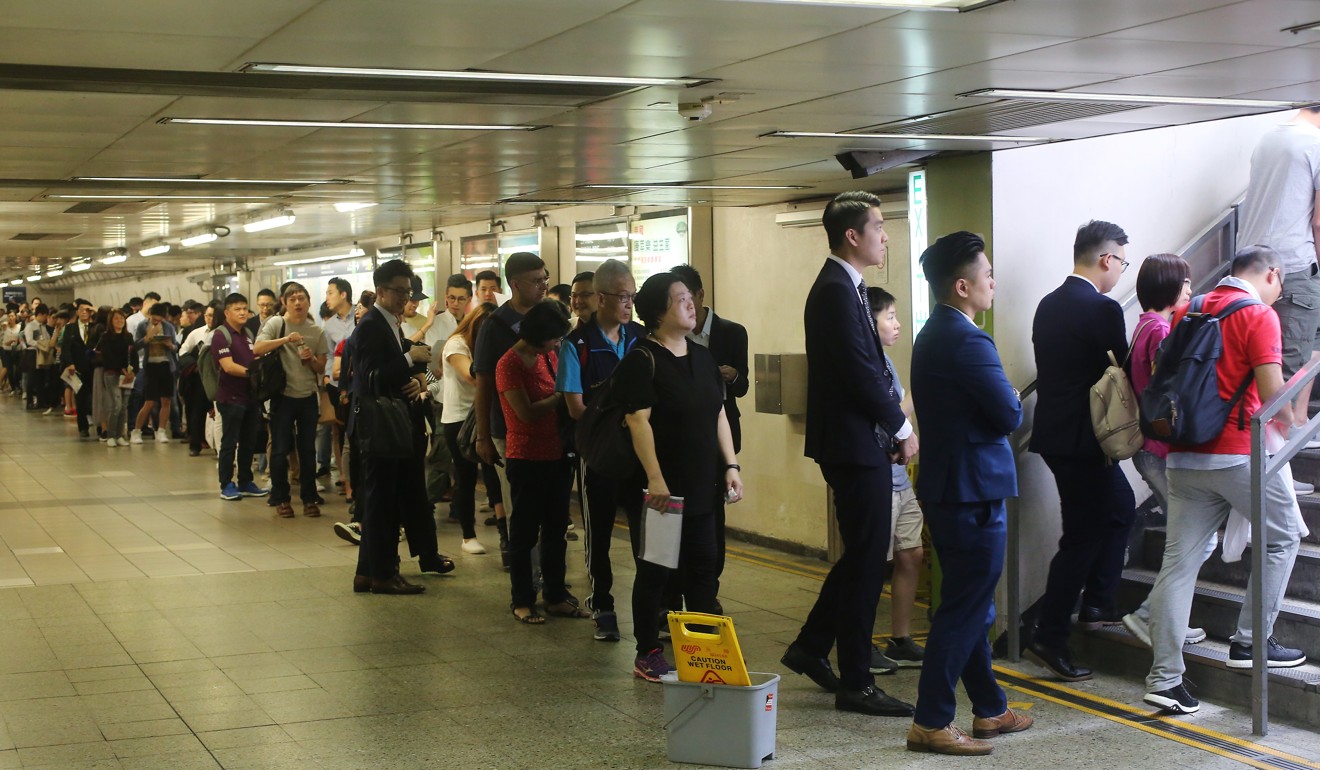
Is Hong Kong’s property market heading for its biggest crash since 1997?
Property prices have surpassed the previous peaks in 2015 and 1997, but analysts say the fundamental conditions supporting this boom are sound
If history is any guide,the long queues of property buyers at Hong Kong’s Tsuen Wan residential project last weekend could be the harbinger of a bubble in the world’s most expensive housing market.
They were willing to ignore record-level prices and mortgage rates that had just been raised the night before by four of the city’s largest banks.
Photos of long queues at the weekend and reports that broke transaction and price records one after another have touched a nerve in Norman Chan Tak-lam, chief executive of the Hong Kong Monetary Authority, the city’s de facto central banker.

Nicholas Brooke,chairman of Professional Property Services Group agreed.
“There are similarities to 1997 in terms of price rises, the queuing, the long upward cycle and the strong general buying momentum in the market,” Brooke said.
Watch: Why is Hong Kong housing so expensive?
Still, for every prophecy of doom, there is a believer in the upside.
“Home prices have always been high,” said Alice Shun, one of the hundreds of buyers in the queue for Ocean Pride. “I don’t think it can really ever go down from here. We have to buy property to live in them. So it doesn’t really affect our decision to buy.”

Two decades ago, the city’s hottest property was the Villa Esplanada complex in Tsing Yi, a joint project of Chinese Resources, Sun Hung Kai Properties and Cheung Kong Property. Hundreds of buyers thronged the project’s Causeway Bay sales office, going around the block.

The bubble was there, said Cusson Leung, managing director at JPMorgan Chase’s Asia-Pacific equity research unit, who remembered the 1997 crash.
“We see the cloud hanging out there, but we are not sure when it will rain,” Leung said.
We see the cloud hanging out there, but we are not sure when it will rain
To be sure, Hong Kong’s economy is at a different level today, compared with what it was in 1997, which could shield the city from a crash even if a price correction is unavoidable.
“[The city’s gross domestic product growth] appears to have steadied even if it is not overexciting and interest rates remain relatively benign, with tolerance to absorb up to two, and even more, 25-basis-point increases before affordability becomes a real issue,” Brooke said.
Most importantly, loans have got much cheaper after 20 years even if property prices are at their peak. The city’s average mortgage rate is 2.15 per cent, a fraction of the 11.25 per cent in September 1997, according to JLL.

That means that even if home prices were to plunge 50 per cent now, no one in the city will actually find themselves in negative equity.
Hong Kong’s property market suffered another setback in 2003 when it had barely recovered from the 1997 crash, weighed down by the outbreak of severe acute respiratory syndrome that deterred visitors, curtailed travels and sapped economic activity.

On the back of the improved GDP, lower interest rates and a better banking system, an enlarged net of buyers and growing wealth in the city over the past 20 years had helped sustain the current property boom, said Nicole Wong, regional head of property research at CLSA.
The profile of Hong Kong resident buyers has also changed during this time.
“There are many Hong Kong resident permit holders coming from the mainland and they have strong balance sheets,” she said.
About 9,000 mainland students enrol as undergraduates in Hong Kong universities each year, and thousands enter through the Scheme for Mainland Talents and Professionals. They become qualified buyers once they have lived in Hong Kong for seven years.
By Wong’s estimates, this group of “Hong Kong residents” can create demand for up to 30 per cent or 6,000 units of the city’s average new home supply every year.
“The net of buyers has been expanding, giving a cushion buffer to the housing market,” Wong said.
As more than 50 per cent of Hong Kong’s home owners have paid off their mortgages, it is their wealth and not incomes that will fund further purchases.
“That explains why young homebuyers also come with their parents when they sign the contract,” Wong said, adding that parents provided the financial backup to the new generation of buyers.
The net of buyers has been expanding, giving a cushion buffer to the housing market
According to JPMorgan, the loan-deposit ratio. a measurement of banks’ liquidity by dividing total loans by total deposits, fell from 109 per cent in July 1997 to 76 per cent in April 2017.
Other supportive factors are the ample liquidity and limited supply to meet the demand.
Still, is the city’s property market invulnerable?
Yes and no, as analysts say these sound fundamentals are based on one assumption.
“This all assumes no dramatic external regional or international event, which affects confidence to which Hong Kong has always been vulnerable,” Brooke said.
The article has been amended to clarify that Hong Kong’s mortgage rate hit a high of 11.25 per cent in September 1997 in the 17th paragraph, compared with 9.6 per cent in June the same year stated in the table


